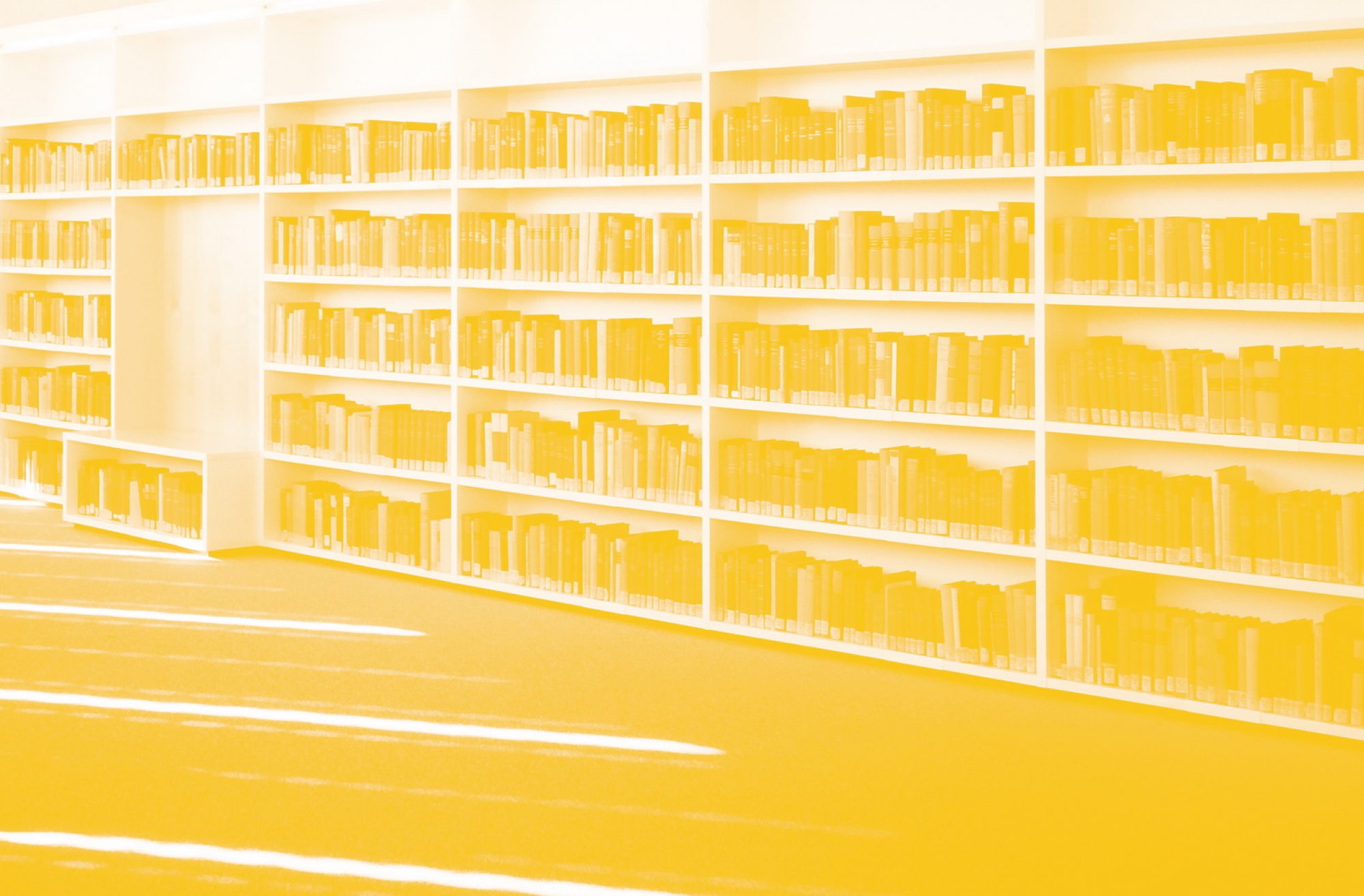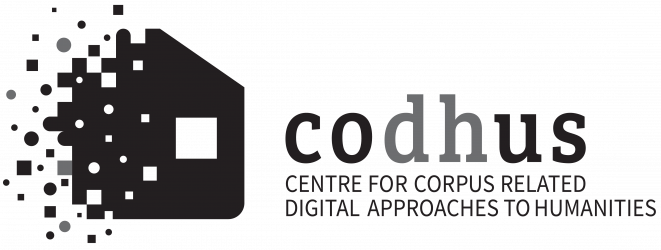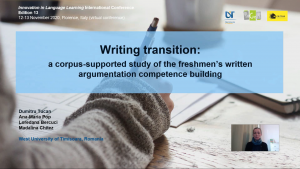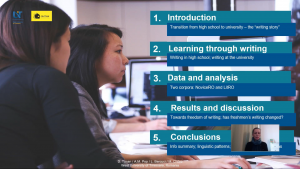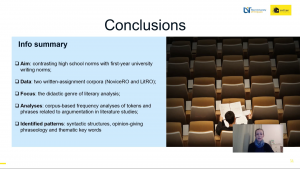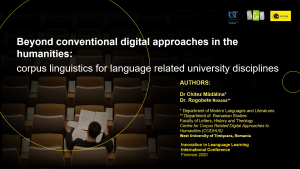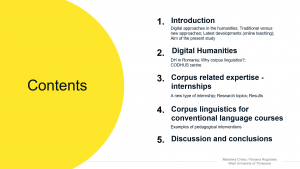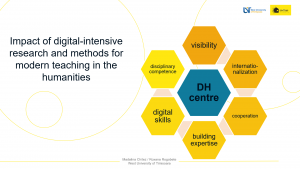In November 2020 (12th-13th), several CODHUS members and other colleagues from the Faculty of Letters, History and Theology (WUT) presented two papers at the International Conference Innovation in Language Learning, Virtual Edition (one of the Pixel International Conferences, previously organised in Florence).
Dumitru Tucan, Ana-Maria Radu-Pop, Loredana Bercuci and Mădălina Chitez presented the paper Writing Transition: A Corpus-Supported Study of the Freshmen’s Written Argumentation Competence Building
Abstract: In Romania, writing is the primary means of assessing student knowledge ever since the adoption of the Bologna Process. Often, students are expected to have learned academic, as well as professional writing, in high school, or to learn it intuitively at university. Previous studies indicate that, in Romania, the genres learned in high school only slightly overlap with the genre’s students are asked to produce at university. In the present paper, we use corpus linguistics methods to analyse and compare the Romanian students’ entrance-level writing, reflecting the high school norms, with their first-year examination writing. As our aim is also to capture the diversity of linguistic and educational challenges the students are confronted with when building their written argumentation competence in their mother tongue, we contrast writing processes in Romanian (L1) in the frame of a course in literary theory. The research methodology involves the compilation of two corpora: (a) a corpus of novice writing, NoviceRO (30 essays), and (b) a corpus of first year writing as part of a compulsory Introduction to Literary Theory class, LitRO (30 essays). We look at rhetorical and linguistic patterns related to argumentation in terms of frequency and effective logical and textual integration. Our findings provide insight into the pedagogical complexities of accompanying the Romanian students in their transition from pre-university towards university writing norms.
Mădălina Chitez and Roxana Rogobete presented the paper Beyond Conventional Digital Approaches in the Humanities: Corpus Linguistics
Abstract: Diving into digital education seems to be the reality in recent times. Universities and humanities departments in particular have willingly embraced technology-rich teaching methods for a long time now [1]. Nevertheless, the general development is towards the implementation of basic digital literacy approaches rather than towards creating new discipline-adapted content that can improve the students’ digital-intensive research skills [2]. This paper illustrates how the discipline of corpus linguistics can create fruitful synergies between language related disciplines in the humanities: literatures studies, both in the native and foreign languages, translation studies, gender studies, media studies, cultural studies and linguistics. The aim of the study is to demonstrate the potential of exposing students in the humanities to digital-intensive research methods, such as corpus linguistics, to enhance learning motivation and improve disciplinary competence at the same time. The first part of the study is dedicated to the presentation and exemplification of the teaching and student research methods that have been implemented with first- and second-year undergraduate students at a Romanian university who conducted a three-month internship at the Centre for Corpus Related Digital Approaches to Humanities (CODHUS). The second part includes details on the teaching scenarios and outcomes of pedagogical interventions, based on the use of corpora, in two undergraduate courses. The paper concludes with a discussion on the impact of applied corpus linguistics methods for modern teaching in the humanities as well as their integration into the larger field of digital humanities.
The final articles can be read here.
The conference presentations can be viewed here.
More information about the conference here.
The poster of the event:
Presentations excerpts:
Dumitru Tucan, Ana-Maria Radu-Pop, Loredana Bercuci și Mădălina Chitez, Writing Transition: A Corpus-Supported Study of the Freshmen’s Written Argumentation Competence Building
Mădălina Chitez și Roxana Rogobete, Beyond Conventional Digital Approaches in the Humanities: Corpus Linguistics
